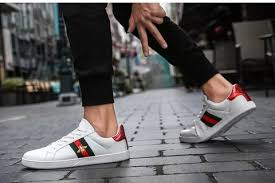Sporting event venues are often bustling hubs of activity and energy, hosting thousands of fans who come to witness their favorite teams and athletes in action. Behind the scenes, a complex web of employment dynamics drives the successful operation of these venues. From event preparation to post-game cleanup, numerous roles and responsibilities ensure that everything runs smoothly. In this article, we’ll explore the key Employment in entertainment establishments (유흥업소 구인구직) dynamics at play in sporting event venues and highlight the various roles that contribute to their success.
The Diverse Workforce
Sporting event venues rely on a diverse workforce to handle the myriad tasks required to host events. This workforce is typically composed of:
Full-time Staff: These employees hold permanent positions and are responsible for the day-to-day management and maintenance of the venue. Their roles may include venue management, marketing, finance, and human resources. Full-time staff ensure that the venue is always ready for events and that all operations run efficiently.
Part-time Staff: Part-time employees are often hired to handle specific tasks during events, such as ticket sales, concessions, and guest services. These roles are essential for providing a positive fan experience and ensuring that all attendees have a memorable time.
Seasonal and Temporary Workers: Sporting event venues often hire additional staff during peak seasons or for special events. These workers help manage the increased demand for services and ensure that everything runs smoothly. Their roles can vary from security and crowd control to merchandise sales and event setup.
Volunteers: Many sporting events rely on volunteers to support various functions, such as directing guests, providing information, and assisting with logistics. Volunteers play a crucial role in enhancing the overall experience for attendees and are often motivated by their passion for sports and community involvement.
Key Roles and Responsibilities
Venue Management
Venue managers are responsible for overseeing the overall operation of the sporting event venue. They coordinate with various departments to ensure that all aspects of the event are planned and executed efficiently. Venue managers also handle budgeting, scheduling, and liaising with external partners, such as sponsors and vendors.
Event Coordinators
Event coordinators work closely with venue managers to plan and execute sporting events. They handle logistics, such as seating arrangements, ticketing, and equipment setup. Event coordinators also ensure that all staff and volunteers are properly trained and prepared for their roles.
Guest Services
Guest services staff are the frontline representatives of the venue, interacting directly with attendees to provide information, answer questions, and address any concerns. Their primary goal is to ensure that all guests have a positive and enjoyable experience. This role requires excellent communication and problem-solving skills.
Security and Crowd Control
Security personnel are responsible for maintaining a safe and secure environment within the sporting event venue. They monitor entrances and exits, manage crowd control, and respond to any incidents that may arise. Effective security is critical to ensuring the safety of both attendees and staff.
Concessions and Merchandise
Concessions and merchandise staff handle the sale of food, beverages, and memorabilia during events. These roles require strong customer service skills and the ability to work efficiently in a fast-paced environment. Concessions and merchandise sales are often a significant source of revenue for sporting event venues.
The Importance of Teamwork
The successful operation of a sporting event venue relies heavily on teamwork and collaboration. Each role, whether full-time, part-time, seasonal, or volunteer, plays a vital part in creating a seamless and enjoyable experience for attendees. Effective communication, coordination, and a shared commitment to excellence are essential to achieving this goal.
Conclusion
Employment dynamics in sporting event venues are characterized by a diverse and dynamic workforce that works together to ensure the success of events. From venue management to guest services, each role contributes to creating a positive experience for attendees. Understanding these dynamics is crucial for anyone involved in the operation of sporting event venues, as it highlights the importance of teamwork, effective communication, and a commitment to excellence.

